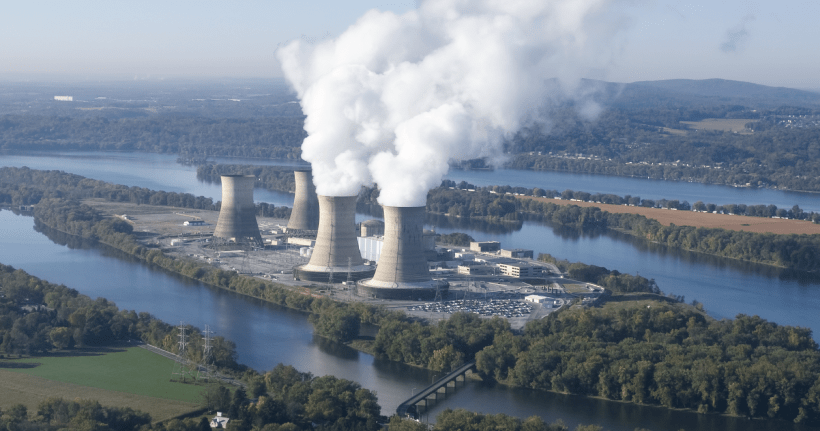Microsoft's AI ambitions fuel unlikely comeback for dormant Pennsylvania nuclear reactor

US energy company Constellation plans to restart the Three Mile Island Unit 1 nuclear power plant in Pennsylvania, which shut down in 2019, under a new name. A power purchase agreement with Microsoft has made this billion-dollar project possible.
Constellation Energy has signed a 20-year power purchase deal with Microsoft, clearing the way to recommission the Three Mile Island Unit 1 nuclear reactor in Pennsylvania. The reactor, which closed in 2019 for financial reasons, is set to reconnect to the grid in 2028 as the "Crane Clean Energy Center" (CCEC).
Constellation CEO Joe Dominguez stated that the plant was one of the safest and most reliable nuclear facilities on the grid before its early shutdown. He believes restarting it will boost Pennsylvania's economy. The neighboring TMI Unit 2 reactor, which failed in 1979, is being decommissioned by its owner, Energy Solutions. TMI Unit 1 is a separate plant whose long-term operation was not affected by the Unit 2 accident.
CO-2 free energy for AI boom
Microsoft will buy power from the refurbished plant to help meet the surging energy needs of its regional data centers with carbon-free electricity, driven by the AI boom. Bobby Hollis, Microsoft's Vice President of Energy, described the agreement as a key step in decarbonizing the power grid.
Constellation says major investments are needed to upgrade the plant, including its turbine, generator, and cooling systems, before restarting. The US Nuclear Regulatory Commission (NRC) must approve the restart after a thorough safety and environmental review. Constellation also plans to apply for a license extension until at least 2054.
The power plant is expected to generate over 800 megawatts of carbon-free electricity, contribute $16 billion to the state's economy, and create over $3 billion in tax revenue.
Pennsylvania Governor Josh Shapiro supports the project, stating that it will improve the energy grid's reliability and ensure Pennsylvanians have access to affordable electricity for years to come. Large AI data centers have become economic drivers that states are competing to attract.
AI News Without the Hype – Curated by Humans
As a THE DECODER subscriber, you get ad-free reading, our weekly AI newsletter, the exclusive "AI Radar" Frontier Report 6× per year, access to comments, and our complete archive.
Subscribe nowAI news without the hype
Curated by humans.
- Over 20 percent launch discount.
- Read without distractions – no Google ads.
- Access to comments and community discussions.
- Weekly AI newsletter.
- 6 times a year: “AI Radar” – deep dives on key AI topics.
- Up to 25 % off on KI Pro online events.
- Access to our full ten-year archive.
- Get the latest AI news from The Decoder.